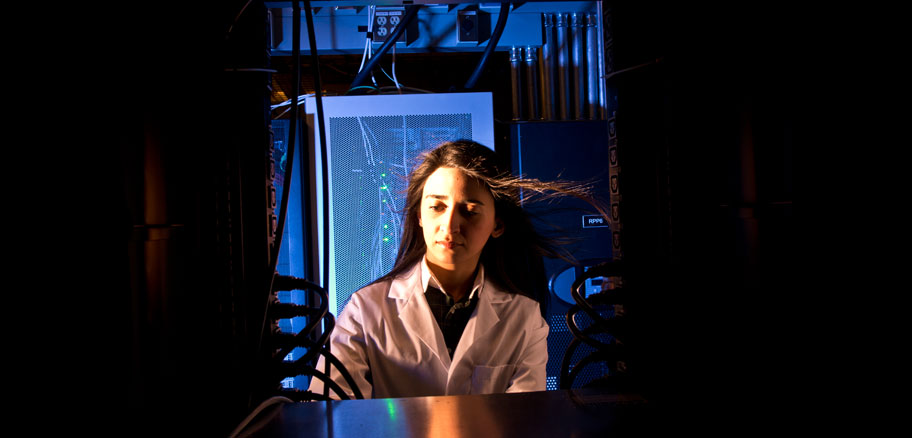
Outside the technology world, what’s considered an exciting development in the field can often go unnoticed.
Talk of clouds, servers, stacks and racks may titillate those attending the Open Compute Summit, like the inaugural one held in fall 2013 at UTSA; but, let’s be honest, as party conversation it may draw blank looks among the less tech-savvy.
Even so, technology revolutionizes the way we live, and the faculty, staff and students of the university’s computer science department are joining–and even leading–that revolution.
“We are partnering with industry leaders to expand our academic and research focus to include the cutting-edge technologies and the problems that are significant to industry,” said Raj Boppana, interim chair of the department.
Plus, with Google Fiber naming San Antonio as one of nine cities poised for expansion of its ultra-fast, fiber-optic Internet service, even more tech businesses could be lured to the region, city leaders have said.
Through its Cloud and Big Data Laboratory and with a focus on open technologies, UTSA has positioned itself to be in the center of the cloud computing evolution, said Paul Rad, director of the Open Compute lab and vice president of research at local company Rackspace.
Definitions of “open” can vary, but Google describes open technologies as those that are more transparent, adhere to standards already set by the computing community or help create those standards if they do not exist.
“We are in an interesting time,” Rad said. “Everyone is moving toward the cloud [and] we’re leveraging this.”
For the uninitiated, cloud computing allows information to be saved online instead of on a personal storage device such as a computer’s hard drive. The type of system needed to run cloud computing as well as the required speed and capacity to handle growth differs from that used for more traditional storage, Rad said.
The push for a certification lab in North America came from the Open Compute Project. The initiative was founded by Facebook to encourage industry giants to be more transparent and collaborate on hardware designs used for cloud computing.
The goal is to improve efficiency and cost while diminishing the amount of energy needed to power the goliath data centers the companies require. Facebook, for example, came under fire from Greenpeace for its use of nonrenewable energy. The company and environmental group released a joint statement in 2011 that supported the Open Compute Project to help find energy solutions needed to run such large operations.
Rad said the certification lab works like a quality assurance unit to make sure the standards agreed upon by the project members are met. UTSA sets itself apart by giving students the opportunity to work on the certifications and customizations, he added.
“The hardware ships to us from all over the world for certification and cloud solutions, and as a result we have access to leading-edge technologies before anyone else has the opportunity to buy [them],” Rad said. “We are funneling this skill set to the market as well. We are learning it, enhancing it.”
Computer science graduate student Mark Appleby, who returned to UTSA after getting his bachelor’s degree in 2012, believes the work he’s done with the certification lab and in cloud computing will help with job prospects.
“We are just getting our hands dirty and seeing how it works out,” Appleby said. “I’m really looking forward to what we will be doing in the future.”
–Michelle Mondo